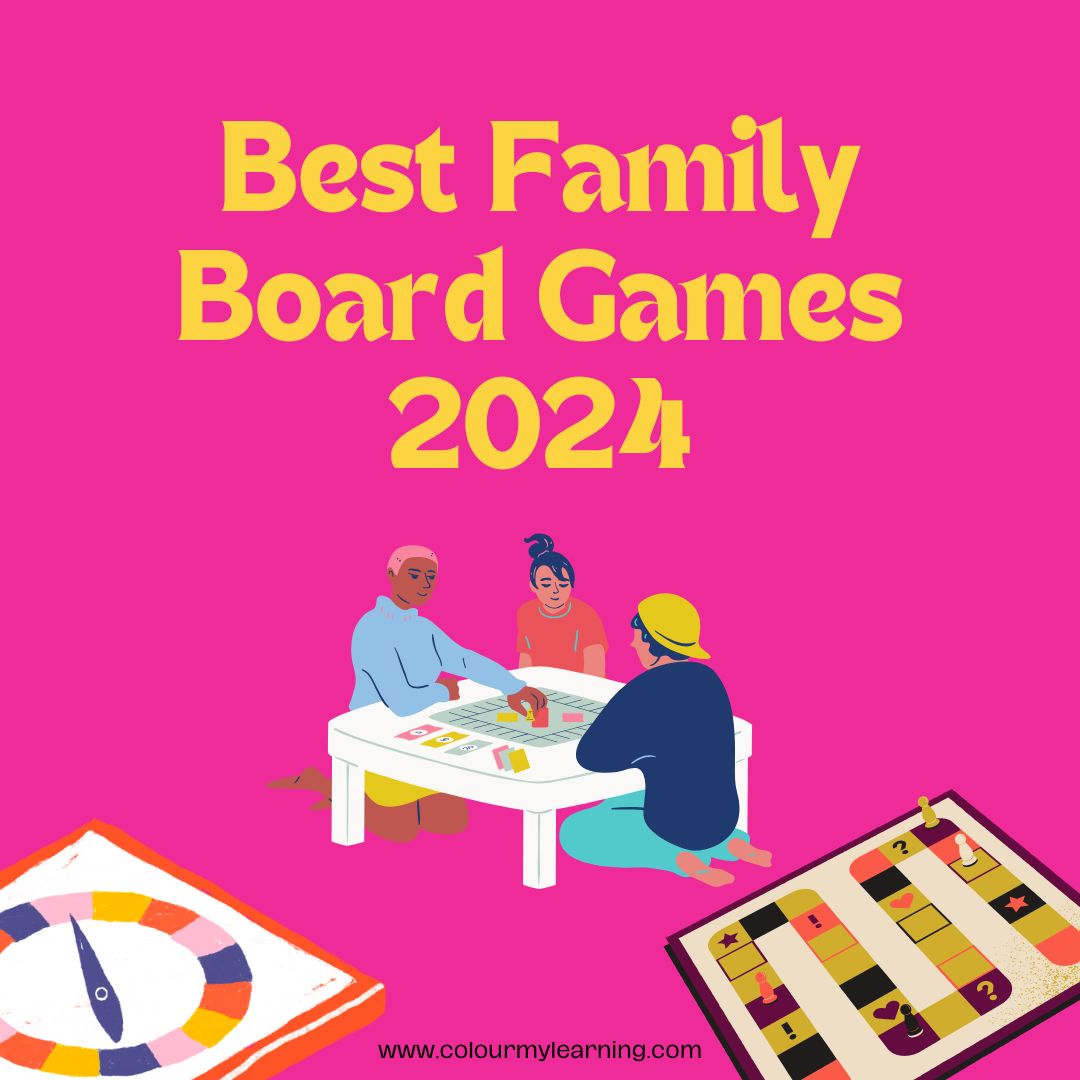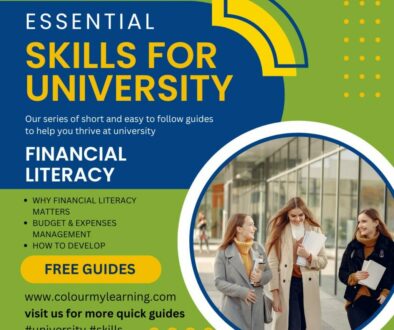Top 8 TED Talks on Learning – How to inspire learning; science, maths, coding & more
Different people may have different ways of learning, but man’s insatiable thirst to seek and consume new knowledge is universal. Learning never ends for as long as we’re alive, and there’s always something new to learn every single day.
So whether you’re interested in learning a new craft, or are grappling with the challenges of homeschooling and distance learning, or are simply seeking new ways of learning, there is a Ted Talk in this list for you.
Top 8 Best TED Talks on Learning
Here are 8 of the best Ted Talks about learning.
1. Ramsey Musallam – 3 rules to spark learning
Normally, you wouldn’t trust a teacher who nonchalantly says “learning is ugly.” However, this chemistry instructor made a solid case for himself by completing the sentence with “…but you gotta embrace the mess.”
That’s one of the three rules Musallam imposed upon himself in order to spark learning among his students. Another one is that curiosity comes first. He said teachers, parents, and all other educators should have the guts to perplex their students in order to elicit real questions from them, even going so far as to say that students’ questions are the greatest tools teachers have.
His third rule to spark learning is this: Practice reflection. Musallam believes teaching is not about finding the one perfect formula, but the willingness to revise and adapt one’s ways to fit each student’s individual needs.
Watch the rest of his talk here:
2. Tyler DeWitt – Hey Science teachers, make it fun
Like Ramsey Musallam, Tyler DeWitt is a science teacher who is not happy with the way the subject is being taught in a way that makes students’ eyes glaze.
This Ted Talk is a rousing call for all science teachers to make learning fun. How? Well, nothing drives the speaker’s point better than his highly entertaining example of how he thought viral and bacterial infections to his own kids.
Meet secret agent virus who had to dabble in a bit of espionage in order to succeed in his mission to infect a bacterium:
Now, isn’t that a refreshing take on learning science? For DeWitt, it’s all about convincing the audience that what he’s talking about matters. He called on anyone who’s involved in science to pick up a camera, write a blog, or simply talk about science while leaving out the seriousness, the jargon, and any details that nobody cares about.
For him, the best way to learn science is to hear someone say, “Listen, let me tell you a story.”
3. Dan Meyer – Math Class needs a makeover
Dan Meyer, a math teacher, agrees that there’s something inherently wrong with the textbooks and workbooks currently being used by students to learn math. Like Tyler DeWitt, Meyer believes the reason a lot of students have an aversion to learning math is because they think it won’t be useful to them in real life.
He discussed how textbooks are not helping the case of math teachers by simply providing formulas and changing up variables every now and then without giving students the chance to practice reasoning and patient problem solving.
If you grew up hating Math or is teaching a bunch of kids who hate Math, this Ted Talk might just shift your whole perspective on the subject:
4. Linda Liukas – A delightful way to teach kids about computers
Along with math, there’s no doubt that computer coding is the universal language of the future. Linda Liukas thus calls out parents for treating the study of computer science as an eccentric discipline that’s as ‘far removed’ from everyday life as nuclear physics.
Instead, the veteran coder believes technology and computers should be introduced to kids in the same plane as their crayons and legos – stuff to tinker and play around with, instead of stuff that are mechanical, lonely, boring, and mysterious.
Linda emphasizes the importance of raising kids to be comfortable around computers. The new generation will inevitably grow up surrounded by computers, and the only way we can equip them to be competitive is to start them learning young. Here’s how:
5. Ali Carr-Chellman – Gaming to re-engage boys in learning
In this Ted Talk, instructional designer Ali Carr-Chellman presents a staggering statistic:
“For every 100 girls that are suspended from school, there are 250 boys that are suspended from school. For every 100 girls who are expelled from school, there are 335 boys who are expelled from school. For every 100 girls in special education, there are 217 boys. For every 100 girls with a learning disability, there are 276 boys.”
She then follows it up by the usual, blasé explanation offered by faculty members, which is that boys are generally more interested in video games than in any kind of learning they might pick up at school.
Carr-Chellman drops another bomb after this: Video games are not the cause. Rather, addiction to video games is nothing but a symptom that boys have long lost interest in school.
The instructional designer presents a simple solution: we must dive deep into boys’ culture, and bring back their interest in learning by creating better games. Before you comment on how crazy this sounds, here’s the full explanation from Carr-Chellman herself:
6. John Green – The nerd’s guide to learning everything online
In his wildly popular Ted Talk, John Green marvels at Youtube, which he refers to as the old man’s classroom.
He starts by saying he never actually thrived in formal school, because he didn’t like the arbitrariness of having to hurdle academic challenges just to ‘graduate’ to adulthood. John Green never liked the idea that the entire purpose of school is to get him a nice job when the time comes.
All that changed when he enrolled in a small boarding school in Alabama. Suddenly, he found himself in the company of learners, instead of blank-faced students just going through the motions of studying to pass, studying to hurdle tests, and studying to get a good job. Finally, he had a learning environment where there’s hardly any pressure to ‘succeed.’ Instead, there was brimming excitement to learn new things with like-minded people who “celebrated intellectualism and engagement.”
For years after he graduated, John Green struggled to find another community of learners like the one he had in Alabama – at least, until he discovered the magical world of tutorial videos and informational content over on Youtube. He is more than happy to once again immerse in a learning community, which he discovered to “exist in corners of the Internet, where old men fear to tread.”
Here’s Green’s inspiring story:
7. Daphne Koller – What we’re learning from online education
Coursera instructor Daphne Koller lamented the general inaccessibility of higher education, even in first-world nations. She thus appealed to higher learning institutions to offer some of their best courses online for free.
According to Koller, there are three fundamental things to be gained in making quality education affordable and accessible to everyone through online courses like the ones offered by Coursera:
- It would establish education as a fundamental human right, a means for families and communities to create better lives for themselves.
- It would enable lifelong learning. (John Green would definitely be in agreement.)
- It would enable innovation, and could empower the next Einstein or the next Steve Jobs, who could be residing in a remote village somewhere.
8. Sal Khan – Let’s teach for mastery, not test scores
In his Ted Talk, Khan Academy’s Sal Khan offers a rousing criticism to the way traditional learning is structured in schools.
He believes there is something alarming about the way we lump schoolchildren of the same age in identical classrooms, teach them identical lessons, and give them identical tests, and expect that all of them will reach the same level of mastery at the end of the school year.
Khan thinks this model fails to take into account a myriad of other factors that might cause other children to fall behind the level of learning that his/her peers might have achieved.
Instead of this traditional one-size-better-fit-all format, Khan is of the position that education should be viewed the same way as a martial art, where students would have to train the white belt skills over and over again, for as long as they need it. Only when they’ve mastered that skill would they be allowed to move on and be introduced to yellow belt-level skills.
Alternatively, Khan argued that learning school subjects should be likened to learning a musical instrument. The novice guitar player would have to play the same 3-chord song in a recital year after year after year. It is only when he has perfectly mastered the song could he be allowed to try out harder ones.
It’s an interesting take on learning, and while many people have doubted the practicality of such a proposal, one can’t deny the beauty of Khan’s ideal learning environment:
Final Thoughts
It’s undeniable that the way we learn is changing the same way the world around us does. Sure, virtual classrooms are fast gaining ground at the moment, but there’s really no saying what the future could hold in terms of learning. Still, if the progressive ideas discussed in these 8 Ted Talks are any indication, then there might be good reason to hope that any change that’s coming would be for the better.
Do you think the current education system prevailing across the world badly needs a makeover? Here are 8 Ted Talks that agree with you. Share on X















